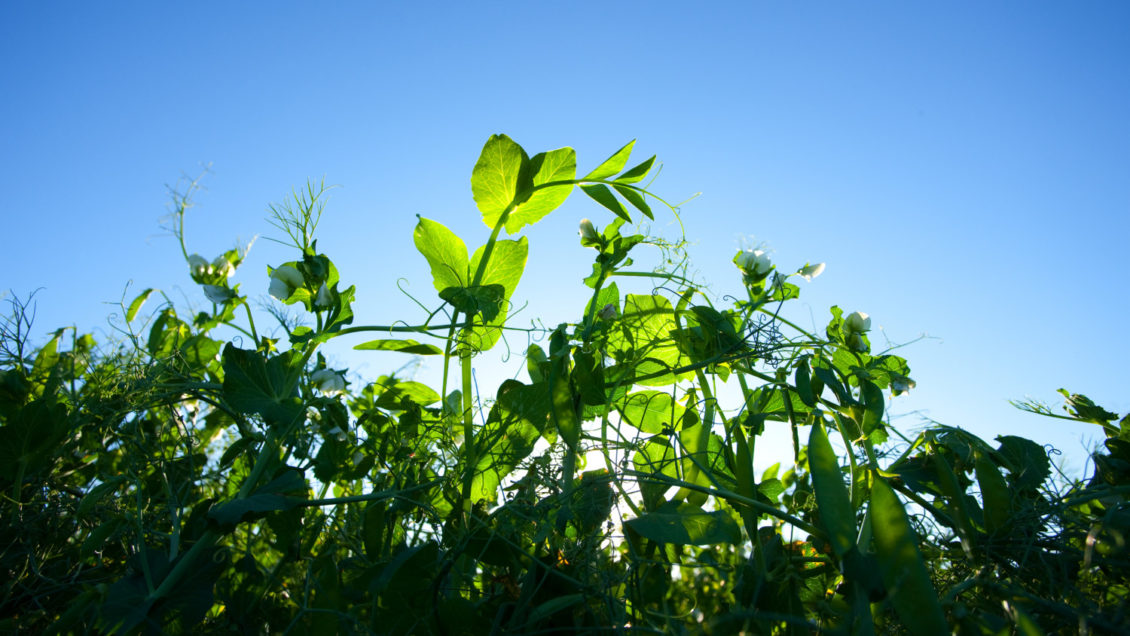CLEMSON – A group of Clemson researchers wants to show South Carolina farmers how organically growing cereal and pulse crops can improve nutrition while lowering production costs.

The group, led by Clemson professors Dil Thavarjah, Rick Boyles and Stephen Kresovich, received a nearly $1 million grant from the United States Department of Agriculture to develop pulse and cereal grain crops that can be grown organically in South Carolina, and to help South Carolina farmers benefit from growing these crops organically.
“Current organic grain production depends on cultivars that have been bred for non-organic production, but these often are not suitable for organic production,” Thavarajah said. “We need varieties that can be organically grown.”
By using organic farming practices, farmers don’t need to buy expensive chemicals and fertilizers. Instead, they use farming practices, such as different tillage methods and cover-cropping for weed control, and biological methods for insect pest control. Organic farming is sometimes equated with lower yields and nutritional quality.
Thavarajah believes pulse crops, such as field peas, can be grown organically and still have an improvement in nutrient quality. Field peas are a new Southern cash crop that can be rotated with sorghum, a cereal grain.
Sarah Powers, a doctoral student in Clemson’s plant and environmental sciences department from Lexington, North Carolina, is one of the researchers on the grant. She will be identifying field pea traits to enhance their genetics for organic production.
“This research will allow for the breeding of future biofortified field pea cultivars with increased economic returns,” Powers said. “These traits will make field peas more desirable and popular in the organic market, as well as better able to resolve micronutrient deficiencies.”
Powers said she also hopes to identify traits in field peas associated with phosphorus-use efficiency. Phosphorus is a vital but nonrenewable resource in agriculture and is rapidly being depleted.
This project is part of an overall effort by scientists in Clemson’s College of Agriculture, Forestry and Life Sciences to optimize crops for South Carolina growing conditions.

Consumer demand is growing for organically produced goods. A report from the USDA Economic Research Service shows organic sales account for more than 4 percent of total food sales in the United States. Boyles suspects this project may be what is needed to encourage more organic farming in South Carolina.
“Organic grain demand for food and feed use continues to increase both regionally and nationally,” Boyles said. “Meanwhile, very little research has been done to understand what cultivated varieties, or ‘cultivars,’ are adapted to organic management. As a plant breeder and geneticist, it is my responsibility to develop and identify new crop cultivars that best serve regional stakeholders.
“This project not only facilitates the development and evaluation of new breeding lines for organic production, but also dives into which genes are important for increasing nutritional quality and yield under organic cropping systems. Identifying genes controlling plant traits such as disease resistance and nutrient use efficiency will help to accelerate organic agriculture in the 21st century.”
Organic farming is an important part of South Carolina agriculture. As this sector of farming grows, the South Carolina Department of Agriculture says it is important the state’s farmers stay informed of new and innovative methods to grow organic crops.
“I often say that agriculture is a big tent that includes a variety of farming methods,” said South Carolina Commissioner of Agriculture Hugh Weathers. “South Carolina farmers who grow organic crops satisfy an important and growing segment of the consumer market with diverse and delicious produce and products.”
The project is set to begin in Jan. 2019 and will last for three years at farms located in Florence County. The public can learn about what the researchers find by participating in educational activities such as, on-farm workshops and an Organic Plant Breeding Summer Institute. In addition, a website will be created to provide producers with information about production, variety selections, certified seed sources, seed grading, nutritional quality and marketing information. The USA Dry Pea and Lentil Council, and United Sorghum Checkoff Program also will provide educational materials and an annual organic grower on-farm workshop. Dates and other information about the workshops and Summer Plant Breeding Institute will be available later.
In addition to Thavarajah, Boyles and Kresovich, other researchers involved in the project include: Rebecca McGee, USDA pulse breeder and research geneticist, Tony Melton, Clemson Extension Service senior county agent and Denise Attaway, Clemson communications agent.
END
This study is funded by a United States Department of Agriculture Research, Education and Economics Information System (USDA-REEIS) grant #2018-51300-28431. Any opinions, findings and conclusions or recommendations expressed in this material are those of the authors and do not necessarily reflect the view of USDA-REEIS.
Get in touch and we will connect you with the author or another expert.
Or email us at news@clemson.edu

